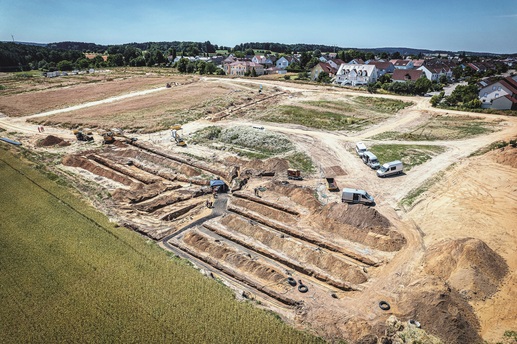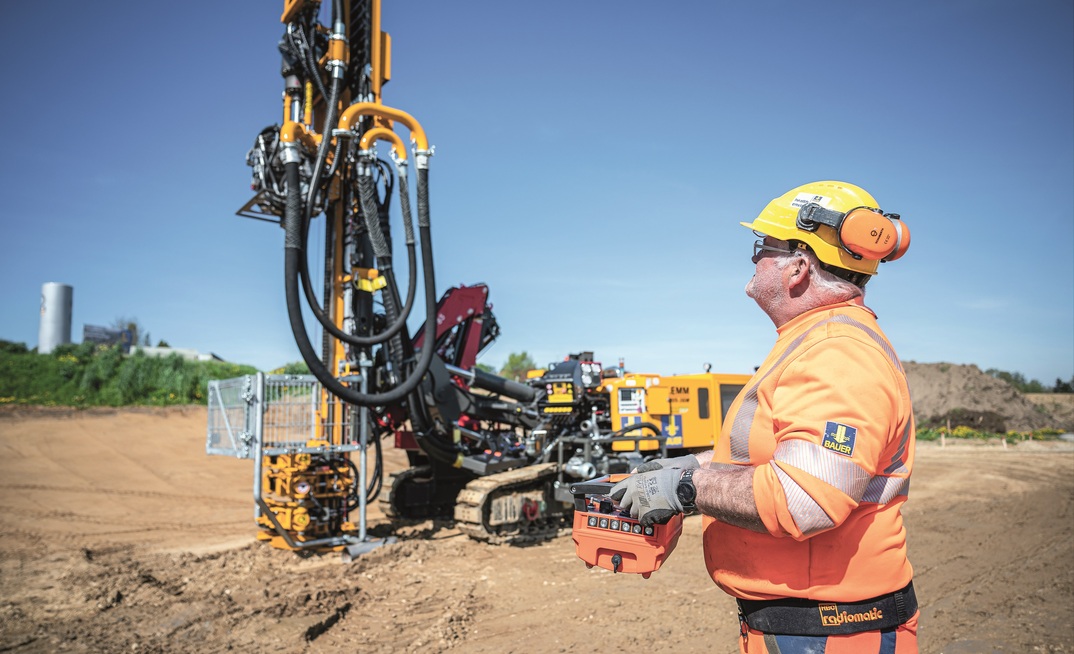On behalf of the company Bürger-Energie-Genossenschaft Neuburg-Schrobenhausen-Aichach-Eichstätt eG, Bauer Resources collaborated with the local city administration and public utilities to construct a geothermal probe system and cold district heating network over an area of 5.5ha for a total of 64 residential buildings and a kindergarten - drawing on all the company's expertise in the process.
"This flagship project clearly demonstrates our hand-in-hand, holistic approach to working with geothermal heat. And this is truly our greatest strength," Marcel Moesslang, operations manager at Bauer Resources, said.
Efficient heat exchange
Starting in March 2023, a total of three drilling teams worked simultaneously on site to install the three geothermal probe fields. Step by step, they drilled one hole after another - some of which reached down to a depth of 60m.
In the next stage, 119 geothermal probes were inserted into the boreholes and grouted with a backfill material that enables efficient exchange of heat with the subsoil.
One of the biggest challenges here, according to equipment operator Stefan Baciu, was the tough weather conditions. "Continuous rain made our work considerably more difficult. As an equipment operator, you have to be persistent. After all, the equipment has to be operated manually, that is, via remote control - regardless of the weather. And that's not nearly as comfortable as sitting in an operator's cab." But the work has paid off: in the end, the geothermal probe fields will generate lots of green energy.
Geothermal probes
But before green energy can start to flow, the connection lines for the geothermal probes and cold district heating network have to be installed. In other words: excavating trenches, constructing a sand bed and laying pipes. The last step, in particular, was an extremely difficult task for the team on site.

50km of pipeline were laid as part of a geothermal heating package for a new housing development in Germany Credit: Bauer
"We're talking about 50km of pipeline here. The laying work alone took more than two months," Moesslang said: "With dimensions like that, it's essential to have an experienced team to complete the work smoothly."
In addition, two tried-and-trusted digital helpers were used to precisely document the pipe route: a drone and a rover rod. "Using the surveying data we collected, an audit plan was established in which every detail can be consulted and monitored at any time," Moesslang said. Once this stage was complete, the pipe trenches were sealed off and the site was flushed and backfilled. More than 30,000l of glycol mixture were used for this task.
Klemm drill rigs
For such a major project, a great deal of experience is necessary. And Bauer Resources has what it takes. "All the same, we know expertise alone is not enough. Without the right equipment and high-quality construction materials, it would all come to nothing," Moesslang emphasized. "It's helpful to have specialists in the ‘family'." The geothermal probes were delivered by the subsidiary GWE and the powerful drilling rigs for probe drilling came from Klemm Bohrtechnik, which has been part of the Bauer Maschinen Group for more than a quarter of a century.
"This project was an optimal chance for us to present our extensive range of services," Moesslang concluded.



















